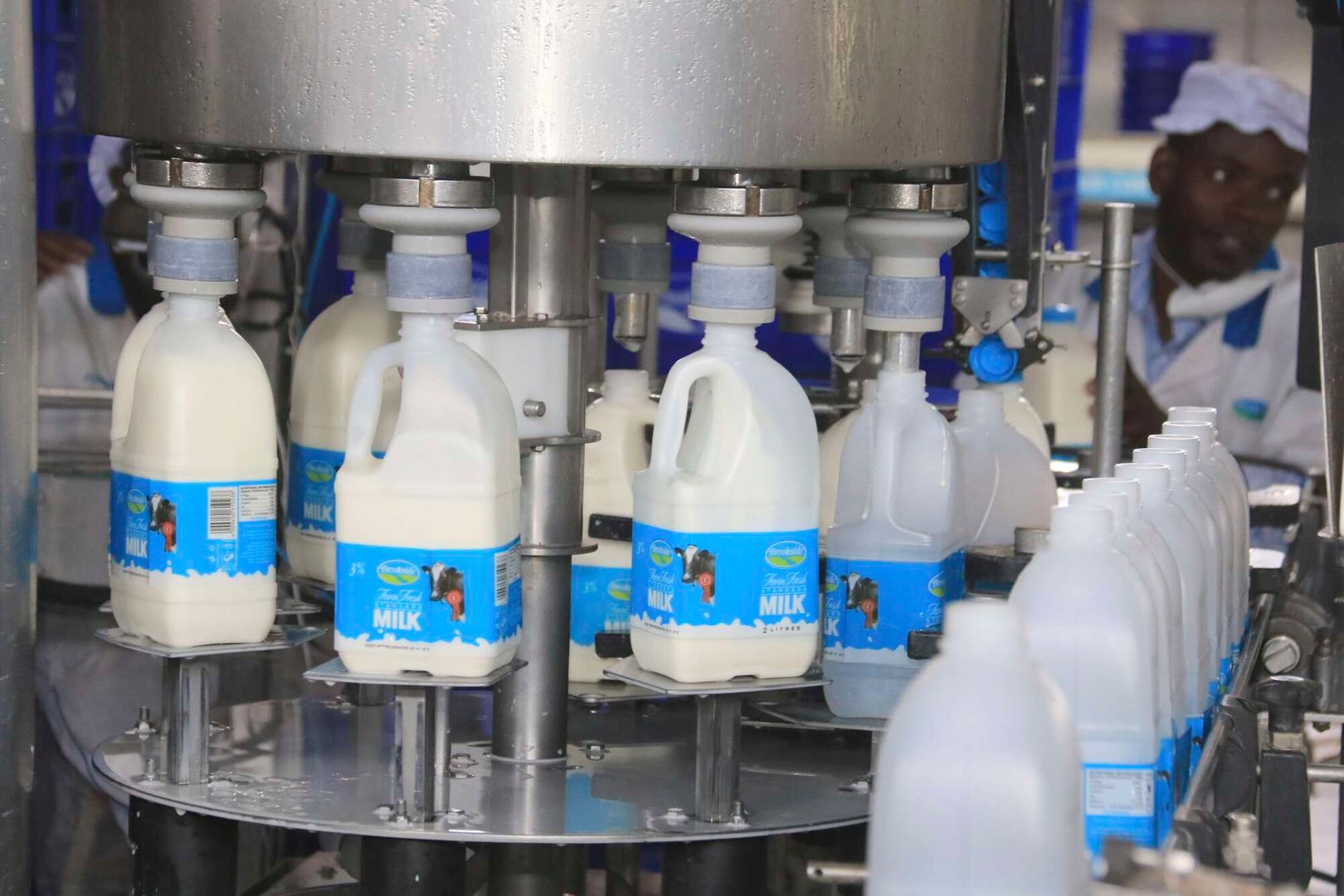Kenya’s dairy industry stands as a cornerstone of the nation’s agricultural economy, contributing significantly to both GDP and employment. With a rich history and a dynamic market, understanding the landscape of licensed milk processors is essential for stakeholders and consumers alike. This article delves into the current state of the dairy sector, provides a detailed list of licensed milk processors, and offers insights into the industry’s future trajectory.
The Kenyan Dairy Industry: An Overview
The dairy sector in Kenya is among the most advanced in East Africa and ranks second in Africa concerning herd size. It plays a pivotal role in the country’s economy, contributing approximately 4.5% to the national GDP and 14% to the agricultural GDP. The industry supports the livelihoods of an estimated 1.8 million smallholder households and provides direct employment to about 750,000 individuals, with an additional 500,000 employed indirectly.
Production and Processing Statistics
- Annual Milk Production: In 2023, Kenya produced approximately 4.6 billion liters of milk. Favorable weather conditions and strategic governmental initiatives are expected to boost this figure in the coming years.
- Processing Rates: Despite the substantial production, only about 15% of the total milk produced undergoes formal processing. The majority is consumed at the household level or sold through informal channels.
- Export Growth: The dairy sector has witnessed a remarkable 49% increase in export value, reaching Ksh 7.3 billion in 2023, up from Ksh 4.9 billion in 2022.
List of Licensed Milk Processors in Kenya
The Kenya Dairy Board (KDB) is responsible for licensing and regulating milk processors to ensure quality and compliance with industry standards. Below is a comprehensive list of licensed milk processors as of February 2025:
- Nairobi South: Bio Food Products Limited
- Kisii: Highland Creamers Foods Limited
- Ol Kalou: Kinangop Dairy Ltd
- Nyeri: Demka Dairy
- Murang’a: Siche Dairy
- Ol Kalou: Ol Kalou Dairy Ltd 2016 Limited
- Ol Kalou: Ziara Dairies Limited
- Kisii: Musty Distribution Limited Kisii
- Ol Kalou: Country Delight Dairy Limited
- Nakuru: Ravine Dairies Limited
- Nakuru: Devyani Food Industries Kenya Limited
- Nairobi Central: Uplands Premium Dairies & Foods Limited
- Murang’a: Aspendos Dairy Limited
- Meru: Meru Central Dairy Cooperative Union Ltd
- Thika: Brookside Dairy Ltd
- Nairobi South: Glacier Products Limited
- Nakuru: Happy Cow Ltd
- Nairobi West: Sun Power Products Ltd
- Nyeri: Mukurweini Wakulima Dairy Limited
- Nyeri: Narumoro Dairy Farm Ltd
- Nairobi West: Caritas Dairy Unit
- Meru: Meru Highlands Dairy Limited
- Nakuru: Nimac Plaza
- Ol Kalou: Milfresh Dairy Limited
- Nairobi Central: Palmhouse Dairies Limited
- Ol Kalou: Aberdare Slopes Fresh Dairy Ltd
- Ol Kalou: Valley Ever Fresh Dairy Limited
- Nakuru: Suka Farmers Cooperative Society Ltd
- Ol Kalou: Mugiko Favoured Dairy
- Nairobi Central: Ndumberi Dairy
- Thika: Amstrong Company Limited
- Nairobi West: Tatu Milk Limited
- Ol Kalou: Lucky Dairies Njabini Factory
- Athi River: Stanley & Son Limited
- Nairobi West: Afrodane Food Industries
- Nairobi West: Limuru Dairy Farmers Cooperative Society Limited – Processing Plant
- Athi River: Mwamba Oibor Dairy Centre
- Murang’a: Murang’a County Creameries Cooperative Union Limited
- Nakuru: Happy Cow
- Nairobi Central: Wimssy – Kiambu
- Ol Kalou: Golan Dairies
- Nairobi West: Kiambaa Dairy Farmers Cooperative Society Limited
- Nyeri: Morani Limited
This list is based on data from the Kenya Dairy Board as of February 2025.
Key Players in the Kenyan Dairy Industry
While numerous processors contribute to Kenya’s dairy landscape, several key players have established significant market presence:
1. Brookside Dairy Limited
Founded in 1993, Brookside Dairy has grown to become one of the largest milk processors in East Africa. The company offers a diverse range of dairy products, including fresh milk, yogurt, butter, and cheese. Brookside’s extensive distribution network ensures its products reach consumers nationwide.
2. Bio Food Products Limited
Headquarters: Nairobi
Bio Food Products is renowned for its premium dairy offerings, including fresh and flavored milk, yogurts, and dairy-based beverages. The company has gained a reputation for innovation, particularly in producing lactose-free and high-protein dairy products tailored to health-conscious consumers.
3. Happy Cow Ltd
Headquarters: Nakuru
Happy Cow specializes in high-quality dairy products, with a strong emphasis on cheese production. The company supplies major supermarkets, hotels, and restaurants across Kenya, positioning itself as a key player in the value-added dairy segment.
4. Brookside Dairy Ltd
Headquarters: Ruiru, Kiambu
Brookside commands a dominant market share and operates several subsidiaries, including Delamere, Ilara, and Molo Milk. Its vast supply chain and strong export market make it a formidable force in the Kenyan dairy sector.
5. Meru Central Dairy Cooperative Union Ltd
Headquarters: Meru
One of the leading cooperative societies in the country, Meru Central Dairy Cooperative Union processes milk from thousands of smallholder farmers. The company is recognized for its commitment to farmer welfare and community empowerment.
Trends and Challenges in Kenya’s Dairy Industry
Despite its rapid growth, Kenya’s dairy sector faces several challenges and opportunities that shape its trajectory:
Emerging Trends
✔ Technology-Driven Dairy Farming:
The integration of artificial intelligence (AI), precision farming, and Internet of Things (IoT) solutions is revolutionizing milk production, improving efficiency and milk yield.
✔ Value Addition:
Processors are increasingly focusing on high-value dairy products such as cheese, butter, and yogurt to enhance profitability and reduce reliance on liquid milk sales.
✔ Sustainable Dairy Farming:
There is a growing shift towards eco-friendly practices, including biogas production from dairy waste and the adoption of climate-smart agriculture.
✔ Export Expansion:
Kenyan dairy products are gaining traction in regional and international markets, with increased exports to Tanzania, Uganda, and the Middle East.
Challenges Facing the Industry
🚧 High Cost of Production:
The cost of animal feed and veterinary services remains high, impacting farmer profitability and overall milk supply.
🚧 Milk Gluts and Seasonal Variations:
Kenya’s dairy industry experiences seasonal production fluctuations, leading to price volatility and wastage during peak seasons.
🚧 Informal Dairy Market:
Approximately 85% of Kenya’s milk is sold through informal channels, posing challenges in quality control and regulatory enforcement.
🚧 Climate Change:
Erratic weather patterns, prolonged droughts, and pasture shortages significantly affect milk production, necessitating investment in climate-resilient dairy farming practices.
The Future of Kenya’s Dairy Industry
The Kenyan government and private sector stakeholders are working collaboratively to enhance dairy productivity and market competitiveness. Key initiatives include:
- Modernizing Dairy Cooperatives: Strengthening farmer cooperatives through capacity-building and access to credit.
- Infrastructure Development: Improving cold chain logistics and milk processing facilities.
- Dairy Policy Reforms: Enforcing quality standards and reducing market barriers for smallholder farmers.
- Research and Innovation: Promoting new dairy breeds and feeding technologies to improve milk yields.
With these efforts, the industry is poised for continued expansion, with projections indicating a rise in milk processing capacity and increased global market penetration.
Kenya’s dairy sector holds immense potential for investors, farmers, and consumers alike. To maximize this opportunity:
📌 Farmers: Invest in modern dairy farming techniques to enhance productivity.
📌 Processors: Embrace value addition and innovation to differentiate products.
📌 Investors: Explore dairy value chain financing opportunities.
📌 Consumers: Support local dairy brands and advocate for sustainable dairy practices.
By fostering collaboration across the dairy ecosystem, Kenya can solidify its position as a leading dairy producer in Africa and beyond.





